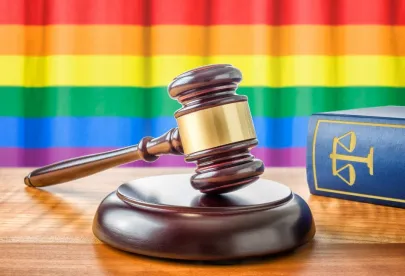In the past month, there have been several important Federal Appellate Court decisions regarding sexual orientation discrimination. On March 20, the Eleventh Circuit reaffirmed its prior precedent that Title VII does not extend protection to individuals harassed on the basis of sexual orientation. The Court noted that claims for gender nonconformity are allowed, but stated that there were not sufficient facts for such a finding in the present case. The Court also stated that it cannot reconsider prior precedent without a hearing in front of all the judges of the Eleventh Circuit—potentially signaling that the Court is willing to reconsider its position on sexual orientation discrimination.
Just a few weeks later, the Second Circuit also held that Title VII does not prohibit sexual orientation discrimination. The Court rejected the lower court’s assertion that claims of sexual stereotyping and sexual orientation cannot be distinguished and revived the plaintiff’s claims related to sexual stereotyping. The Court reaffirmed that individuals may still bring claims for harassment by people of the same sex and plead that they were discriminated against for not conforming to their expected gender roles. The courts simply reiterated that sexual orientation is not a protected class in and of itself, while still leaving the door open for individuals experiencing harassment for failure to conform to their gender roles to file claims.
On April 3, 2017, in an 8-3 decision, the Seventh Circuit became the first Federal Appellate Court to specifically hold that the sexual orientation discrimination qualifies as sex discrimination under Title VII of the Civil Rights Act of 1964. The Seventh Circuit decision is in keeping with the recent EEOC stance that discrimination on the basis of sex and discrimination on the basis of sexual orientation cannot logically be distinguished.
The plaintiff in the Eleventh Circuit case has requested a hearing in front of all of the judges of the Eleventh Circuit, and the plaintiff in the Second Circuit has been granted an extension to request for such a rehearing. In light of the Seventh Circuit decision, these rehearings seem more likely to be granted, and the Seventh Circuit has provided an outline for the Eleventh and Second Circuits to reverse their earlier decisions. If these courts reach different results, the Supreme Court may be forced to take a case on this issue.
While the reach of the Seventh Circuit’s decision covers only Illinois, Indiana, and Wisconsin, many states and localities already have rules offering greater protections to sexual orientation discrimination. Even without additional protection, the courts have interpreted Title VII to allow individuals claiming discrimination on the basis of gender non-conformity to bring suit. Thus, particularly in light of the new Seventh Circuit precedent, employers should review their personnel policies to ensure they have an appropriate non-discrimination policy.



 />i
/>i
